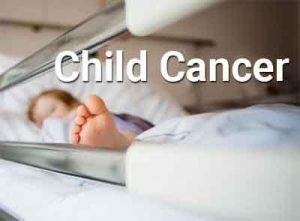- Home
- Editorial
- News
- Practice Guidelines
- Anesthesiology Guidelines
- Cancer Guidelines
- Cardiac Sciences Guidelines
- Critical Care Guidelines
- Dentistry Guidelines
- Dermatology Guidelines
- Diabetes and Endo Guidelines
- Diagnostics Guidelines
- ENT Guidelines
- Featured Practice Guidelines
- Gastroenterology Guidelines
- Geriatrics Guidelines
- Medicine Guidelines
- Nephrology Guidelines
- Neurosciences Guidelines
- Obs and Gynae Guidelines
- Ophthalmology Guidelines
- Orthopaedics Guidelines
- Paediatrics Guidelines
- Psychiatry Guidelines
- Pulmonology Guidelines
- Radiology Guidelines
- Surgery Guidelines
- Urology Guidelines
Survivors of childhood cancer twice more likely to develop Hypertension as adults

People who survived childhood cancer were more than twice as likely as the general population to have high blood pressure (hypertension) as adults.Journal in Which the Study was Published: Cancer Epidemiology, Biomarkers & Prevention, a journal of the American Association for Cancer Research.The author is Dr. Todd M. Gibson, Ph.D., the assistant faculty member in the Epidemiology/Cancer Control department at St. Jude Children's Research Hospital in Memphis, Tennessee.
Improvements in treatment have dramatically increased survival rates from pediatric cancers, with about 83 percent of children surviving at least five years and many becoming long-term survivors. Today, an estimated 420,000 Americans are adult survivors of childhood cancer.
However, many suffer long-term side effects. "High blood pressure is an important modifiable risk factor that increases the risk of heart problems in everyone. Research has shown that high blood pressure can have an even greater negative impact on survivors of childhood cancer who were treated with cardiotoxic therapies such as anthracyclines or chest radiation," Gibson said.
How the Study Was Conducted and Results: To assess the prevalence of high blood pressure among survivors of childhood cancer, Gibson and colleagues examined 3,016 adults who were part of the St. Jude Lifetime Cohort Study, which provides ongoing medical assessments of childhood cancer survivors to advance knowledge of their long-term health outcomes. Participants were considered to have high blood pressure if their systolic blood pressure was 140 or greater, their diastolic blood pressure was 90 or greater, or if they had been previously diagnosed with hypertension and were taking antihypertensive medication.
The study showed that the prevalence of hypertension was 2.6 times higher among childhood cancer survivors than expected, based on age-, sex-, race- and body mass index-specific rates in the general population.
The prevalence of hypertension increased over time: At age 30, 13 percent of the survivors had hypertension; at 40, 37 percent had hypertension, and by age 50, more than 70 percent of the survivors had hypertension. Gibson said the prevalence of hypertension in cancer survivors matched rates in the general population of people about a decade older.
Certain groups of survivors were the most likely to have hypertension: men; non-Hispanic blacks, older survivors, and those who were overweight or obese, the study showed.
The study found that exposure to radiotherapy or chemotherapy were not significantly associated with hypertension.
Author Comment: Gibson said the lack of association between high blood pressure and radiotherapy and chemotherapy was surprising and suggests that the connection between childhood cancer survival and adult hypertension is multifactorial and worthy of future research. In the meantime, he said, clinicians should be mindful that survivors of childhood cancer are more likely than the general public to develop high blood pressure.
"The good news is that, unlike prior cancer therapy, high blood pressure is a modifiable risk factor," Gibson noted. "Research is needed to identify effective interventions to prevent hypertension in survivors, but our results emphasize the importance of blood pressure surveillance and management."

Disclaimer: This site is primarily intended for healthcare professionals. Any content/information on this website does not replace the advice of medical and/or health professionals and should not be construed as medical/diagnostic advice/endorsement or prescription. Use of this site is subject to our terms of use, privacy policy, advertisement policy. © 2020 Minerva Medical Treatment Pvt Ltd